#ill probably make another post when it has enough substantial content
Explore tagged Tumblr posts
Note
Found your account thru YouTube thanks to that short with three of ur OCs little selves meeting their older selves—that was deadass enough to have me hooked I am so interested in all three. Where can I get started learning the LORE!!
I've only really just started posting about these guys so I don't have a whole lot of lore dumps out yet--however here on tumblr and toyhou.se are where I'll be posting the majority of my drawing related to the TOoDL universe as well as other projects! Right now I'm trying to switch everything over into my #TOoDL tag for easier archiving.
#in all frankness i was not prepared for the amount of people that would find me through that short at the beginning of the year so ive only#ever posted things willy nilly and just for fun for a small group of friends#its crazy how that can change so fast#im also setting up my kofi memberships to show off more WIP and lore drops before i make them public#ill probably make another post when it has enough substantial content#fumble: asks#anonymous
7 notes
·
View notes
Text
Polarization
There is a widespread perception that the U.S. has become as polarized, politically, as it has ever been. A careful consideration of America history suggests that’s not actually true, but I understand the sentiment and I often feel it myself. Being retired provides me with an inordinate amount of time to ponder this problem and to try to make sense of it. It’s become something of an obsession.
I like to mix it up a bit in social media - primarily Facebook - with persons opining on various social ills and political agendas and especially those blindly sharing fact-challenged propaganda, both from the left and right. I’ve stayed away from Twitter, which by design strictly prohibits posts from being long enough to contain meaningful reasoning. I like to save Instagram for pretty photos of flowers and birds and vacations. But Facebook seems a reasonable forum with enough content flexibility to present ideas with some depth to them. Social problems are inherently complex and nuanced, as evidenced by the fact that most of those problems have persisted, in one form or another, throughout human history. Individually and collectively we often find ourselves in situations where there is no perfect, right answer or solution - certainly not one that can be summarized in a tweet.
Our response to dealing with COVID-19 is a good example. There are enormous difficulties, economic and otherwise, with isolating ourselves from one another, and another set of bad outcomes resulting from not doing that. The tendency, it seems, judging by most of the dialogue we see in social media (and most other media) posts and comments, is for people to take ideological positions, cherry-pick supporting facts (or worse, supporting falsehoods), and promote extreme positions. By “extreme” I mean positions that ignore the truths that are quite often inherent in opposing positions. Again using the debate over proper responses to the COVID-19 pandemic as an example, most people who originate or share political posts on Facebook seem either to be solidly of the opinion that isolation, shut-downs, masks, etc. are good policy, or they’re of the view that all those measures are counterproductive or even unAmerican.
Most people instinctively understand that neither of those views is exclusively correct, but people who are in the middle tend not to weigh in as often, perhaps because their confusion about the solution makes them feel that they don’t have anything meaningful to say. I think those voices should be heard much more often than they are. I feel like I have one of those voices, and that’s why I feel a responsibility to try to make myself heard.
Following is my approach to analyzing sociopolitical issues - that is, issues that can be addressed, at least in part, through government action or some other form of collective action by citizens working towards a common goal. First, I try to understand whether and how the issue can or should be addressed by the government. That question is itself a polarizing one. Conservative ideology contains mistrust of government, especially Federal government, whereas liberal ideology contains high expectations that the government should intervene to address most social ills. Neither of those views is inherently correct. One of the the biggest challenges politicians face, when they’re focused on “doing the right thing” and not just getting elected, is deciding what the best role of government ought to be in tackling specific issues. It should be obvious that the government is not the right institution to deal with some issues (the establishment of religion, for example) but it is the right institution to deal with some other issues (the defense of the nation against an outside military force, for example).
When I attempt to discern the proper role of the government, I avoid starting with the ideological answer. Instead I try to look at it pragmatically. Why is (or is not) the government equipped to deal with the particular issue in question? Can government be effective? Can government be efficient? How will government fund its involvement? What other institutions can or should be involved? What’s the ultimate cost to society, economically and otherwise, to having the government more or less involved? The calculus involved to answer these questions is exceedingly complex; nevertheless that’s what politicians ought to spend their time debating, and their debate should always begin with a careful gathering and consideration of relevant facts, dismissing ideology in favor of rationality and consultation with experts to the fullest extent possible.
One time when I still had an active professional career, I was in Utah to give a presentation to the board of directors of a financial institution. One of the directors was a former U.S. senator from the state, and I happened to be seated next to him when the board convened for lunch. When he learned I resided in Pennsylvania, he asked me what I thought about the reelection chances for a well-known senator from my state who had recently switched his party affiliation. That led to a discussion about certain economic policies, during which the senator delivered the low-tax mantra familiar to anyone who has ever listened to a Republican politician for more than a few minutes. My response to him was that I had never understood why the White House, Congress and the Senate didn’t decide about the appropriate level of income taxes by first deciding a) how much does it cost the government to do the things that everyone agrees it needs to do, and b) what else is the government better equipped to do than is any other institution or group of individuals or companies, and how much does that cost? The answers to those questions, I opined, would inform the government about how much revenue it needs to raise. Cart before horse, as it were. I thought the senator would have a ready answer but he seemed not to have ever thought about it that way. Probably, I surmised, because he was more of an ideologue than a pragmatist. Reducing taxes is Republican dogma if anything is.
Let’s return to the issue of the proper size and scope of government, which is a major bone of contention between conservatives and liberals. I can think of numerous Republican friends whose belief that big government is wasteful, inefficient and disrespectful of individual liberty is perhaps the main driving force (among the forces that involve reason and not just culture, tradition and emotion) behind their party affiliation. A strong preference for low taxes is a closely correlated issue. I think it’s safe to say that almost everyone distrusts the government about some things if not many things. Liberals also believe that big government is a problem, just in different ways - for example, too much spending on the military. That’s a whole other issue in its own right and I don’t want to veer into a tangent here, but the point is that everyone wants limited government, and our Constitution is clearly designed to handcuff government overreach. Where should the lines be drawn, to the extent they aren’t clearly spelled out in the Constitution, as potentially amended?
First I want to say to my liberal friends, it is true that the government is often wasteful and inefficient, and not just in the area of military spending. Who hasn’t complained about long lines or call waiting times at government agencies? Who hasn’t been affected by some kind of government error or bureaucratic hassle? Who hasn’t heard tales of certain government employees and contractors being underworked and (seemingly) overpaid? When my father died and my mother required constant care because she was disabled by Alzheimer’s disease, I spent many, many hours dealing with the Veterans Administration to obtain certain benefits for her, so I know first-hand what a nightmare that can be. Because we experience these things, it’s easy for us to conclude that government is bad, or at best a necessary evil.
But I ask my conservative friends who are particularly inclined to seize on the flaws of government as a reason to dislike government generally, are the alternatives to government necessarily better? Many conservatives and libertarians contend that government ought to be run like a business. Indeed, I used to be a big proponent of that theory. Certainly if government were run like a business, it would be more likely to cut dead weight and strive for cost-effective delivery of services, because that’s how it would survive, fiscally. At some point in mid-life, I heard someone whom I respected say flatly that the role of government is not that of a business. I thought about that and realized my friend was correct.
A business operates not just to provide goods and services to its customers, but foremost to earn money for its owners and managers. That’s the basis of capitalist ideology (more about that in a later blog). The government operates (or should operate) in the interests of its citizens - all of them, or as many as possible. There is no profit motive. If social security, for example, were run as a business, the inevitable result would be that a relatively small group of people would take a sizeable chunk of our FICA taxes for themselves, and everyone else would either receive lower payments or they would pay higher taxes for the same benefits. That’s basically what insurance companies that sell annuities do - they take their cut first. I’m not being critical of insurance companies - annuities have a proper role in the personal finances of many people. But annuities are not affordable for many. The fact that our health care system is operated for profit to a much greater degree than are the health care systems of substantially all other developed nations is a primary reason why U.S. per capita health care costs are so much higher than those of substantially all other developed nations - about double the average, in fact. Again, health care is another polarizing issue, and properly the subject of a separate discussion.
Briefly, another example: let’s say a private enterprise, such as a mining company, turns an area of land into a toxic waste dump affecting water and air quality in the area. One necessary role of government, I would argue, is to prevent that from happening, but it does happen, primarily because of corruption, even if the corruption isn’t always obvious. There is usually no profit motive for anyone to clean up the toxic land and quite often the offending enterprise has conveniently gone out of business. So either the government steps in to repair the damage or we live with the negative consequences.
My point here is that although government has certain flaws, it’s the only prominent, powerful institution that’s designed to provide for the welfare of the people as a whole rather than just those who will profit from running it. Corruption (again, a separate subject for another discussion) is the rot inside government that facilitates the generation of profit for a few at the expense of everyone else, and that’s why it’s extremely important that corruption be rooted out at every possible turn. In a democracy, the act of voting for candidates who demonstrate disdain rather than tolerance for corruption is a critical function of voters. Beyond that, as I said before, we should task our politicians to debate the circumstances and conditions under which government is the best source to provide services to citizens that private enterprise will not or can not. Based on the consensus our elected officials reach, we should be prepared to pay taxes to fund what has been deemed necessary or healthy for the citizenry as a whole.
I believe in having as small and unobtrusive of a government as we can, so I guess that makes me a conservative. I also believe in having a government that provides necessary and appropriate services for the benefit of all citizens, to the extent possible, which I suppose makes me a liberal. The fact is that these labels just muddy the water and cause us to gravitate to extremes. We need to focus on uncovering the best ways to get things done for the benefit of all the people while providing ample incentive and reward to those who make the greatest sacrifices and contributions to getting them done. Those goals are not mutually exclusive - not at all. Indeed, balancing those goals, and the roles of government, private enterprise and charitable organizations in achieving those goals, is the ultimate challenge for those who make the laws of the land.
1 note
·
View note
Note
Celeste Chapter Nine is out and WOW. Just. WOW. so much character development! a bunch of stuff happened in the timeskip! it's a lot about the bird! it's so good! anything else would probably be spoilers!
Oh boy! I was aware that chapter 9 was coming out around nowish, but I wasn’t in a super hurry to check it out immediately, because… well, because from what I’d read, the gameplay in it was going to be ridiculously hard. So I thought that if the game’s creators had any sense, any story locked behind that level of difficulty would be not particularly important or momentous, for the sake of those of us who aren’t good enough at the game to ever have a reasonable hope of reaching it. Thanks for letting me know that apparently I was wrong to think that! I went to check it out straight away thanks to this ask, and damn that is indeed some Good Stuff there. So before I go into that a bunch, let me just grumble about how frustrated I am that such substantial bits of story are contained within gameplay so difficult.
Celeste basically has two entirely separate target audiences - people who are into the kind of psychological story it tells, and people who enjoy challenging themselves with ridiculously difficult platformers, the harder the better. And only some people are going to be both of those! The assist mode the game has is great, because it allows people who aren’t so good at hard platformers but are still okay at games in general to get to play through the game anyway and see the story while experiencing Madeline’s struggles to climb the mountain as the gameplay is meant to represent. But the much harder B- and C-sides (and even Chapter 8’s A-side) are such a spike in difficulty to the point that if you’re someone who needs assist mode for the main story chapters, there’s very little chance you’ll be able to get through much of these without having to probably just resort to the invincibility option for a lot of it. Those chapters aren’t for the people who are just here for the story and not interested in a huge challenge - which is appropriately represented by the fact that there’s almost no story in them anyway (and the small chunk of story that chapter 8 does have can be accessed without doing any of the difficult parts).
But putting an actual significant story behind things that difficult? I would really rather they did not when they never did before. Sure, assist mode exists, and I could theoretically use it if I wanted to get through chapter 9 just to see the story. But the difficulty level is so high that I’d probably be having to use invincibility and infinite dashes for the majority of the screens, and at that point, I’m not really even playing the game any more and might as well just watch the story from a playthrough on Youtube as if this was never a game that I could handle myself. Which is precisely what I did. (Turns out that actually the first couple of sections of the chapter don’t look so bad and I’d probably have a challenging but fun time playing those, but then there is a noticeable difficulty spike and everything after that gets increasingly insane. Anyone at my level of skill who doesn’t just want to invincibility their way through and doesn’t have the patience to get good enough would be able to get a certain way in and then would just hit a massive wall, leaving them with an incredibly unresolved story.)
(I’m also not saying that the difficult gameplay is inherently bad - it all looks incredibly fun for people who are good enough to not die on it to such an extent that they’d get frustrated, or patient enough that that wouldn’t bother them - I just wish it was an optional bonus thing and not required to see the whole story.)
So yes anyway, rargh rargh grumble grumble this was a bad way to package this that is inconsiderate to people like me who aren’t good at platformers, but the actual story is great and here are some initial thoughts!
My immediate reaction when Madeline said that the bird is Part of Granny was that I FUCKING CALLED IT. I never actually mentioned this anywhere, but that’d always been a pet theory of mine since the bird always seemed to be near the old lady. If she’d been living on the Mountain for long enough and was clearly on good terms with her Shadow - but not still sometimes at odds with her, if her comments about the Mountain keeping her sharp mean anything - then maybe her Shadow just decided to take the form of a bird and hang around with her. Mr. Oshiro was also clearly having conversations with his Shadow at certain points, after all, even though he was much less well-adjusted about it.
(oh, right, for those not familiar with my other long Celeste post, for ease of phrasing I’m going to be calling those Parts of Someone “Shadows” here, thanks to Jungian psychology and Persona 4.)
…Then it turns out that actually the bird may still not be the old lady’s Shadow after all, because this was all Madeline’s dream and we never saw the real bird at all in this chapter. So maybe I didn’t actually call it. But hey, Madeline had the same theory as me! Which is to say that the possibility that the bird was Granny’s Shadow was something that the game’s creators did have in mind even if they wanted to leave it ambiguous, and that’s cool.
I was actually kind of looking forward to learning more about the old lady through her Shadow, during the point at which it seemed like things were going to be about that. It must take a hell of a person to decide to live in a place that shoves that kind of thing in your face every day, and it would have been cool to explore that more and get to see her as more of her own character with her own issues and not just a mentor figure for Madeline.
But, to be fair, this game has always been primarily about Madeline and her issues, mostly using Celeste Mountain and the other characters to help tell her story, so it makes sense that this ended up really being entirely about Madeline facing more issues as she struggles to deal with grief.
I have to admit, it was a little hard for me to properly empathise with Madeline’s grief and feel as sad for her as I feel the story wanted me to, because we’d never really seen how much Granny had come to mean to her. By the end of chapter 7, it just seemed like Madeline was grateful to the old lady for her help but nothing much more than that, so it was a lot of catching up to do to suddenly see that Madeline really loved her and was so broken up by her death. There must have been a lot of correspondence between them offscreen in the however many years it’s been, in which Madeline slowly came to see her as like a mentor-slash-grandmother figure (Madeline never called her “Granny” in the main story, after all). Presumably Madeline would often ask her for advice with her problems and get responses that were kind of blunt and mean but also exactly what she needed to hear, to the point that she began to really feel like she was relying on Granny and couldn’t imagine her being gone. I wish we could have seen more of that, that would probably be pretty adorable - but it’d be hard to do that when this game is a platformer and story can only be shown to us in situations where Madeline has a reason to do some platforming.
Maybe the grief aspect of the story would resonate more with people who’d personally experienced a difficult bereavement and could already automatically relate, though, and maybe that’s more who it was written for. The main story is after all especially relatable for and geared towards people who are also struggling with a mental illness like Madeline is.
Personal relatability aside, though, my own favourite thing about Celeste has always been the existence of Shadow Madeline and the way that having a part of Madeline’s psyche be an actual character in her own right lets them tell the story of Madeline overcoming her problems in a very unique way. So it was still some Very Good Celeste Content to watch Madeline’s clashes with her Shadow as she struggles to deal with this. I am almost certainly going to write another post about specifically this sometime in the future because I am all about analysing characters’ interactions with their Shadows and this in particular was a really interesting role reversal as compared to the main story - buuuut not right now because that was a Lot and I still need to process it all and let my thoughts on it properly solidify.
One thing I will mention for now is that at the beginning when I saw Shadow Madeline still looking her usual purple creepy self, I was sad that apparently my idea that she wouldn’t look so creepy these days now that she and Madeline have been getting along had been debunked. But actually that’s not necessarily the case, because, A, they were never really on the Mountain in this chapter so maybe this is just how Madeline remembers her Shadow looking last time she saw her there, and B, Granny’s death messed her up enough to set her at odds with her Shadow again to the point that maybe she would have reverted back to picturing her as bad and monstrous.
(One of my absolute favourite parts was during the gloriously ridiculous tutorial when the tutorial text spitefully added, “–And Part of You won’t help –(she’s the worst)”. My immediate reaction to that was all “What!? No! She’s not the worst, we established that last time! Who thinks this???” It seemed very notably out of place, since even Madeline herself had eventually concluded during the main story that Shadow Madeline isn’t so bad after all. At the time I still assumed the bird was Granny’s Shadow, so I figured the whole tutorial presentation was her doing and thought it very interesting that another fellow Shadow would think that about Shadow Madeline (suggesting maybe this hypothetical Shadow Granny also thought that about herself?). But then, no, this was all just Madeline dreaming, so of course those words were from Madeline all along and this was a sign of her having taken a step backwards into hating and blaming her Shadow again because of her difficulty in dealing with this.)
And there was some Theo too, yay! I was worried he wouldn’t show up at all, but it is lovely to establish that he and Madeline are still in contact and still good friends, as you can also infer from Theo’s Instagram. Madeline’s whole thing of “I didn’t contact you because stuff happened and then I felt bad about that and then it kept snowballing” is a very sadly relatable mood, and Theo being so completely chill about it is Very Good of him. (Also he calls her “Strawberry” as a nickname and that is too cute.)
#celeste#celeste game#celeste chapter 9#celeste spoilers#shadows#ramble#so basically chapter 9 is great and you should all go... watch it. not necessarily play it#and thank you anon for wanting to tell me in particular about this#that means a lot!#Anonymous
13 notes
·
View notes
Text
Violence in MASS EFFECT.

Alright Tumblr i’m gonna try even harder to satisfy your content laws... God I hope this posts.
MASS EFFECT 2 Marked a change in the creative direction of the series in many ways not just limited to style and presentation. But also in how it tackled violence in its narrative and gameplay.
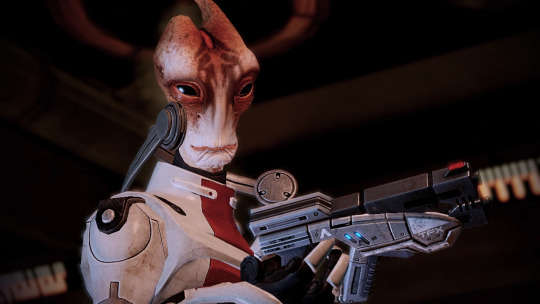
It developed a near uncritical affection for its violence. Removing any semblance of scepticism towards its application with exception to a few storied and mechanical instances all for which will be talked about as we progress.

VIOLENCE IN GAMES AND OTHER FORMS OF MEDIA AS A WHOLE.
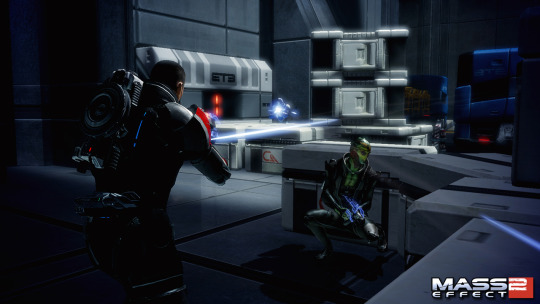
Before we begin ill like to explain to you why violence in a video game is so fun to the player on a mechanical basis. You see video game violence is complete fantasy that much is obvious just from looking at it I hope, it has no real basis in reality. For example the simple fact being that you are interacting with simulated combat via mouse and keyboard on a flat 2D surface, not with your hands, feet, arms, firearms, grenades and depth perception... Some games like the first CALL OF DUTY title go out of their way to communicate this very important distinction to you with its death quotes system, which communicates a famous anti war saying every time you die on the digital battlefield, and you do die a lot in the game so the words always have time to sink in...
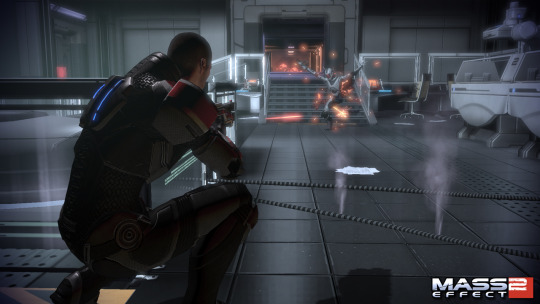
The chest high wall games of wack a mole and close range engagements you typically find yourself in are inherently ridiculous, but something that is true about these portrayals is the deep psychological stuff that occurs in the back of your mind through play.

Fight or flight. Those instinctual, primal/animal like areas of your mind that govern responses to threats and general dangers that were extremely useful during our species evolutionary development as hunter gatherers, if a game is designed well enough it can take advantage of those responses and insert them into game-play loops which encourage positive reinforcement when taking down digital combatants... These are the things games tap into and the things military companies etc also tap into as part of training or recruitment programs especially in modern digital age armies where focus groups have to find new ways of getting young people interested in soldiering without conscription and a national crisis to absorb individuals into service positions. Anyone has the capacity to be violent and become a killer you need only the right training and psychological conditioning and in the army that is one part of basic. Popular video games and films provide you with that psychological training in a very subdued, consumer friendly fashion and that is through desensitisation. “Image training”

It is turned into a power fantasy, for military recruiters it is also an effective strategy for recruitment purposes.
youtube
“War is delightful to those who have not experienced it” Erasmus.

Violence in real life is brutal, random and horrifying even in a domestic sense to any sane or normal person with the capacity for human empathy (Though sometimes there are forms of desensitisation that override this), not even most soldiers who undergo psychological conditioning to be able to kill are immune to this trauma. Violence is not fair, violence is not graceful and more often than not it is also used irresponsibly in any situation where in it is absolutely necessary to be used, even then those situations are themselves questionable. Especially in present day conflicts waged overseas out of sight and mind of the general public for wealth, oil and resources.

I have experienced forms of domestic violence throughout my childhood such as being beaten by my parents and having animals ordered to attack me, I understand how awful it can be to live in absolute fear and experience excruciating pain and misery as a result of this so making a post like this I hope makes you think about this a bit more from that personal lens too.
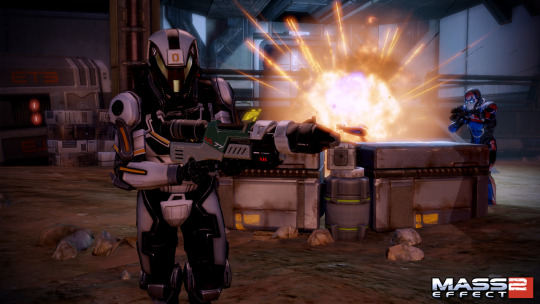
Games and movies on their own dont cause violence that much is certain from studies no matter how vivid their depictions get, but they do desensitise you to its realities in strange and weird ways both mechanically, visually and also sometimes in the narrative. (Until we can someday reach the point where in we can perfectly simulate reality and violence there is no way in hell military companies are going to rely on it exclusively to train soldiers). But they can rely on the positive mental associations they bring to warfare.
HOW MASS EFFECT 2 PORTRAYS VIOLENCE.
MASS EFFECT is by no means a game that is used as a vessel to drive up real world military recruitment, there is no indication of official army endorsement since it is just a trilogy of science fiction video games after all. But it does include violence that tries its very best to make you the player think its wicked cool in addition to finding it fun if the game-play loop is effective enough. Which in ME2 it is especially effective and the marketing wanted to push that.
youtube
So how does MASS EFFECT 2 and to an extent MASS EFFECT 3 make its violence so fun and “Cool”... Ill break this down into a variety of factors starting with your enemies.
DEHUMANISATION OF COMBATANTS AND KNOWING YOUR ENEMY.
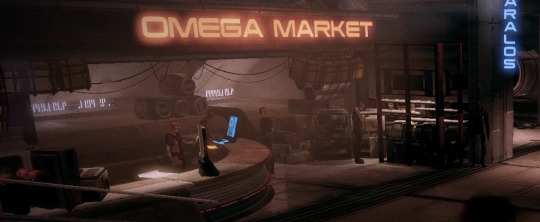
MASS EFFECT 2 takes players to the Terminus systems and other parts of the galaxy that do not fall under official council law, so naturally this means there is an seemingly over abundance of private military and mercenary organisations. But ME2 is not interested in what these things represent completely, more so it is interested in using their presence as a convenient means to provide the player with thousands of disposable henchman to shoot, stab, pull and blow up in a variety of fun and exciting ways!... (Those gamified ways) All the while giving you the excuse to not feel bad while doing so no matter how cruel you are in the application of your response to incoming fire.
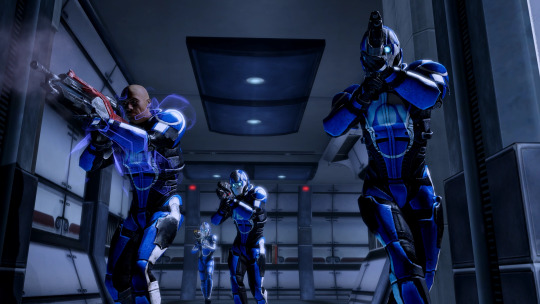
In fact throughout the whole ME2 experience you probably kill more mercenaries comprised of Turians, Humans, Asari, Krogans, Vorcha and salarians, more so then you do the Reapers or Collectors who are supposed to be the primary antagonists of the series... Which it seems is pretty antithetical to the overall themes of uniting the galaxy to fight a common threat which threatens all life, perhaps you have already done the job for em in this regard. What you are seeing here is a form of precision engineered dehumanisation of combatants for purposes of providing a player with something to shoot and kill without much thought and sympathy... and the military also employs this tactic in real life to dehumanise other humans for soldiers to shoot and actually kill.
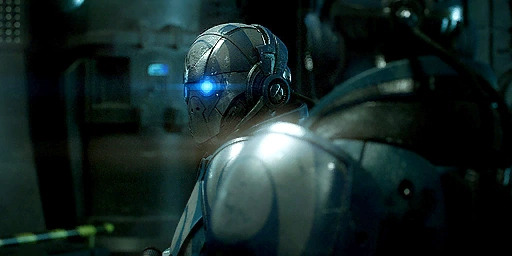
Make your enemies faceless, inhuman or “irredeemable” cannon fodder and the feelings you get for uncritically slaughtering them all are palpable, especially with such entertaining gameplay systems that make the whole endeavour that much more exciting. The same was true for Cerberus in ME3 effectively turning the whole organisation into faceless storm-troopers with filtered voices and intimidating armour again another form of enemy dehumanisation in addition they are all conveniently indoctrinated so thats another justification hooray!. More bad guys to shoot right?
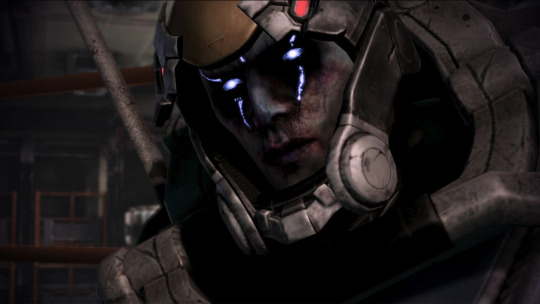
You dont have to feel bad if there is nothing to feel bad about right? You are Commander Shepard! Or a soldier in the military you are right in all actions and decisions you make by virtue of the fact you fight for a cause like stopping the Reapers.
VIOLENCE AS AN ONLY MEANS TO A DESIRED END.
Despite MASS EFFECT’S status as an RPG experience, the games rarely if ever provide you with substantial opportunities to employ diplomatic solutions to various problems where in it would seem feasible that it can be at least attempted.
Most of the time you will be exhausting dialogue options on a screen and shooting faceless thugs behind chest high cover throughout the entire experience.

In the narratives themselves this refusal to resolve conflicts peacefully are actively supported by characters or hand waved as being frivolous by the plot and sometimes even Shepard himself. Kill or be killed rains supreme in again, But in real life that mindset is far from being realistic or preferable.
THE BADASS CHARACTER CLICHE.
Something that will severely age the MASS EFFECT 2 experience is its over reliance on making every single character a BADASS stereotype. Even beloved Mordin Solus falls victim to this strange fixation with violent attributes and histories being considered wicked cool bro! In combat Mordin will utter lines that hint to the fact that he very much enjoys the killing he is participating in.
youtube
“Killed that one!”
“Thought I was harmless did you?”
“Oooh headshot!”
“Here... Enjoy” (Plays during times he sets people on fire with his tech attacks)
He also lists at one disturbing point in the story, all the ways in which he has killed people. Which includes using lethal drugs and... farming equipment, thats funny right? Actually MASS EFFECT 2 seems to include a lot of moments like that in where people list off hilarious methods they have used to kill people.
youtube
Every character in one way or another has the capacity to kill and does kill, they kill quite a lot of people actually and in some cases this is celebrated with gleeful enthusiasm by the plot.
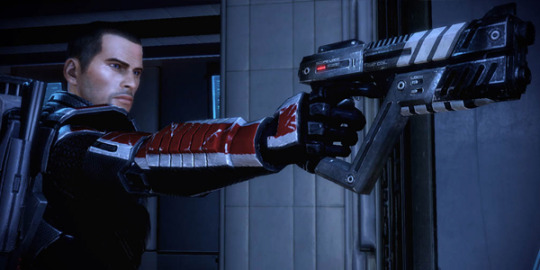
Even Shepard can participate in a little bit of casual BADASSERY no matter if you are renegade or paragon. Be that shooting through hostages, threatening Batarian thugs, shooting Konrad in the foot or generally acting like a ruthless prick all for the fun of it like when you trick a injured mercenary into thinking he is going to die from minor wounds. This is a stark contrast to ME1 which at least tried its best to codify violent or aggressive acts as morally questionable. You are the first Human spectre in that game after all a shining beacon to all humanity in the new frontiers of space, what you do in that story is emblematic of the attitudes the whole of humanity express going forward.
Jack is probably the most blatant example of this new approach to violence the series took for reasons I have already described in previous posts.
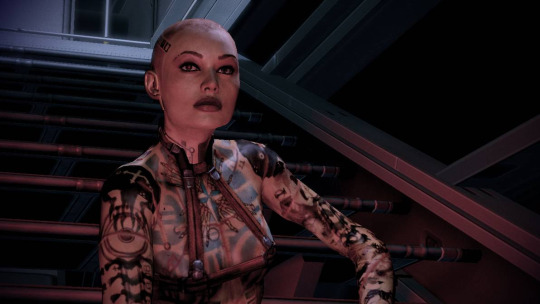
To be clear, I’m not saying MASS EFFECT 2'S inclusion of glorified fantasy violence is entirely a bad thing. I just think that if you are gonna include violence you best be a little more intelligent when it comes to its usage in mechanics and narrative. Because it can be a powerful thematic tool if used right, in some cases there are moments in ME2 wherein it does get used extremely well but those moments are also still few and far between.
We can do so much better.
youtube
22 notes
·
View notes
Text
Juniper Publishers-Role Identity and the Complexities of Adjustments During Retirement

Introduction
This article approaches the question of identity changes during retirement and old age. Retirement seems to be a crucial moment in the process of growing older since it is generally viewed as a point in time where old age begins. Retirees are often referred to as the 'young old', a term that shows some of the uncertainty of elderly people's age identity. They often do not feel old, but nevertheless find themselves suddenly belonging to the category of the 'elderly'. Furthermore, profession provides a very strong identity throughout our working time. The question arises of what happens to that vocational identity, once the profession is not practiced anymore.
Retirement and Self Re-Definition
Retirement is a relatively recent phenomenon, characteristic of affluent industrial and post-industrial societies. In many other cultures, and in our own culture of 100 years ago, retirement was virtually nonexistent. Work was part of life until illness or death prevented it. Now, however, we have compulsory age- based retirement in most occupational sectors, supported by social security schemes, and the tradition of retiring from work around the age of 65 in other sectors. At the same time, life spans are lengthening. Retirement can not only be viewed from the perspective of giving up work. Beside the work-related variable, the retiree needs to adjust to a number of other life change events associated with the process. Shifts occur in at least three important personal resources:
i. A decrease on personal income,
ii. An increase in free time, and
iii. A potential for declining health along with constrained activity.
In addition, there are socio-psychological variables that involve changes:
i. The altered relationships an individual has with his or her interpersonal environment, and
ii. The altered societal perceptions about his or her role in society now that retirement has taken place.
Retirement, therefore, is a complex process requiring adaptation in many spheres of life besides the work role. When retirement as a stage of life is conceptualized, there appears to be general agreement that it is the period following a career of job-holding, when income is usually secured by pension benefits, by virtue of having held a job for a minimum length of time in the past. However, defining retirement in operational terms is more difficult, and there is no widely recognized and accepted operational definition in the literature today. Operational definitions seek to define an abstract concept such as retirement in terms of simple, observable procedures. Researchers studying the field can choose from various approaches to operationalizing retirement, including defining it in terms of reduction in employment, proportion of income from pensions or selfinitiated plans, and a subjective assessment as to whether the subject considers himself or herself as retired. This difficulty in defining retirement is a major problem, and Howard et al. even suggest that the variety of definitions in use probably account in large part for the problem of obtaining consistency in research results.
Ekerdt and DeViney introduce five criteria for defining retirement:
A. Separation from a Career: Under this criterion, persons retire upon leaving a job, position, occupation, or employer with which they have a long association. It is a criterion for which retirement is largely a one-time event. The idea is clear enough—people retire when they leave their life's main work. However, the idea is not easy to operationalize because not all workers have continuous careers in one place or line of work. For example, if a vocational education teacher concludes a career at the local high school but remains occupationally an active plumber, is this a career- ending retirement? When there is not enough common experience and homogeneity of experience regarding careers and endings, it is difficult to frame survey questions about these transitions. One post hoc strategy (i.e., devising a measure from data already collected) is to characterize the position with longest tenure as the "career job" and one's having left it as retirement.
B. Exit from the Labor Force: Exit-retirements occur when an older worker has no current employment, as indicated by zero hours worked or zero earnings, and is not seeking employment. Operationally, labor-force exit is the easiest, most convenient definition of retirement, so long as the investigator does not overlook occasional or seasonal employment that occurs on a regular basis. It has, however, the disadvantage of grouping together as 'non-retired' all persons with any work activity, full-time employment along with nominal engagements in the labor-force. This dichotomy masks the nature of elderly persons' work patterns, which are increasingly characterized by part-time employment with advancing age
C. Reduced Effort: By this criterion, retirement is a substantial reduction in labor supply or income, as indicated by a lower level of work activity or earnings. The "reduced effort" criterion is a refinement of the previous "exit" criterion, locating the cutoff for retirement/nonretirement higher up the labor supply distribution. Work effort is often called an "objective" measure of retirement, yet determinations of full, partial, or nonretirement are fairly arbitrary. Some clues about where to categorize along the work effort or earnings continuum can be had by reference to other criteria.
D. Pension Receipt: Under this criterion, people retire upon receipt of retirement pensions. These are in the United States mainly the retired-worker benefit of Social Security or a pension from private or public employment. Pension eligibility is an administrative definition of retirement and already an amalgam of other criteria. Eligibility for the Social Security benefit is defined by age, previous employment, and reduced earnings.
E. Self-Definition: Persons can be considered to be retired if they say they are. This is typically called a "subjective" definition of retirement, which is, as Ekerdt and DeViney point out, an unfortunate label. In social science generally, the quality of subjective data is usually compared unfavorably to so- called objective data with their greater validity, reliability, and intelligibility. When self-reports of retirement status are labeled as subjective, in contrast to the so-called objective indicators of reduced effort or pension receipt, it may be meant that retirement status is subjectively reported. It is still important to understand what people mean by their responses. When people say they are retired, are they confirming a role exit or assuming a social identity? Are they acknowledging facts about their employment or income?
For instance, it can happen that elderly women, who have been housewives for virtually all of adulthood but receive spouses' pension benefits, define themselves as retired. Other women with full and concluded work careers may see themselves as housewives. Claims about being retired may also be difficult to interpret among persons with histories of irregular work patterns or chronic unemployment. Another problem of the self-definition criterion is that self-definitions may change over time in ways that make it difficult to pinpoint the date or event of retirement. Persons may not decide they are retired until sometime after they have entered a set of circumstances. For example, after a certain duration of disability or unemployment, a person may later decide that he or she had retired when the new situation started.
Role Identity and Retirement Identity
Retirement seems to be a crucial moment in the process of growing old since it is generally viewed as a point in time where old age begins. Furthermore, profession provides a strong identity throughout our working time. The question arises of what happens to that vocational identity once the profession is not practiced anymore. And—more generally—how people in that age around the retirement view them; and if they change their identity in any way. The question to be answered more is; what are the contents of identity change, that is, what domains of the personal identity get more or less important during the transition to retirement. In this section, a special focus is placed on the development of the professional identity after retirement and their self-redefinition as retirees. Another aspect that is addressed is the question, how identity diversity is linked to life satisfaction for retired persons. To these, three other explorative issues are addressed:
i. The question what effect the retirement has on different identity apart from the professional identity,
ii. The question if and how the importance of these different identity change with increasing age, and
iii. The question what kind of changes people perceive in their own persons due to higher age.
According to the social identity theory, individuals categorize themselves and others as a means of ordering the social environment, and locating themselves and others within it. Thus, categories are selected to provide meaningful distinctions between people or subgroups of people. Tajfel argues that because social categories are differentially valued within a culture, social identities also carry varying degrees of positive and negative values for the self. Individuals obtain an assessment of their in-group's value relative to an out-group through social comparison processes. He assumed that humans need positive and distinctive group identities, from which individual selfesteem and a sense of personal value can be derived. Thus, if the group to which an individual belongs is less highly valued than relevant out-groups, the individual becomes motivated to either leave the group or improve the group's standing.
Research in the field of stereotypes towards elderly people and images of aging show that old age is very often associated to negative attitudes. The beginning of old age can be dated in very different ways, since age is a blurred category. Borscheid pointed out that in pre-industrial societies a biological understanding of old age was predominating, "old age" being defined as an increase in frailty- as a summon of death. Thus only those persons were seen as "old" whose physical and mental strength had decreased, and not necessarily those who had passed a certain calendared age. In the meantime, this biologically oriented concept of age has been replaced by a social-political concept, where the beginning of higher age is essentially defined by regulations of the statutory pension insurances, and accordingly by leaving the workforce.
These considerations imply that retirement is probably not viewed as an especially attractive social category, since it is linked so tightly to the category of higher age, and higher age is generally viewed rather negatively. According to the social identity theory, we can therefore expect that people will not view their status of being retired (and accordingly the fact that they have left the workforce) as an important aspect to define themselves. I assume therefore that the role identity remains an important aspect of self-redefinition even after retirement, and is not replaced by a retiree-identity. At the same time, we can also assume that the attitude towards old age has an influence on the readiness or reluctance with which people accept a selfredefinition as "retirees". If their personal view of old age is positive, we can expect them to see their "retiree-identity" as a more important aspect of themselves than if they have a negative view of old age [1].
Retired but Not Tired
Old age or retirement is typically a time when the work role becomes less important and leisure takes on more importance in life. We sometimes think of leisure as "free time," which obviously becomes more available after retirement. But leisure can be defined as any activity enjoyed for its own sake, pursued as an end in itself. Some elderly people are unaccustomed to leisure, so when they leave the role of work, they may try to replace it with lots of activity. "I'm busier than ever," is sometimes heard from people who are retired.
Does leisure in retirement actually replace the work role in later life? Does it become a source of meaning in its own right? The answer depends on the quality of subjective experience during leisure. Leisure may be an end in itself, but moments of leisure also have a developmental pattern that is rich with purpose. Leisure, in short, can be serious business. For example, if we play sports or perform music or read a text, each moment leads to the next in some purposeful developmental pattern. By contrast, other common leisure activities, like viewing television, take up a lot of time for the elderly but tend to be passive or less demanding. In advising elderly people about the use of free time in retirement, we need to recognize that the use of time can vary tremendously in its meaning and purpose.
There is a common stereotype of retired people playing table tennis or all heading off for a music or computer course. Actually, as people get older they usually engage in the same activities as earlier in life, a fact recognized by the "continuity theory" of aging. True, with advancing age, there tends to be an overall decline in participation rate in many kinds of activities, whether going to worship centers or going to the music course. But it is a mistake to think in stereotypes about "elderly people's" activities, such as singing old-time songs. Age alone does not serve as a good predictor of what people will do with their leisure in later life. Elderly people are not all alike.
Conclusion
My aim here is to help retirees find their strengths and happiness in leisure. The grace they have to be retired is an opportunity to self-redefinition and taking up of new identity role. With this we can understand why Macnab sees retirement as a "waste of human resources, skills and experience" and Freedman also sees retirees as an "untapped resource for society". In further discussion, I shall employ concept of 'FLOW' to explore and explain how leisure could be for the retirees, a time and means for creating aging
To read more articles in Journal of Gerontology & Geriatric Medicine
Please Click on: https://juniperpublishers.com/oajggm/index.php
For more Open Access Journals in Juniper Publishers
Click on: https://juniperpublishers.com/journals.php
#Journal of Geriatrics#Journal of open access gerentology#Aging#Open access journal#Juniper Publishers
0 notes
Text
The time has come Shipsters to write a lengthy post. So here it is.
I am busting out the Marlboro Southern Cuts for this, so, be prepared for a lengthy ramble through my mind. First, some introductory notes for those of you who have not DM’d me.
I am a 53 year old Bisexual Female. This is only relevant to comments later in the post or I likely would not be sharing it on this blog. I am also a Disabled Veteran, and while that is not relevant to anything further, I am proud of it, and it does explain the inordinate amount of time I have on my hands to write these kind of things.
I am retired from a lifetime of work in multiple jobs, including ten years of Consulting on Business and Technology. I have been a student of human nature for most of my life. I am, in Jungian terms, an Introvert/Extrovert. Having been an actor, stage manager, costumer and director, who comes from a family of actors, I feel I can comment on that as well. I also am a writer. I am a bit rusty on this type of writing however, so, forgive me if it creaks along. I do hope you, if you read this whole piece, bless you, understand that it is off the cuff and not really intended for critique as to style or content, It is meant to just put my thoughts out there.
Now, to the reason for the post. I want to address the clusterfuck that this fandom is, the ways I would address some of the issues and my overall feelings about S/C the ship, shipping in general and the nature of actors. So, with those hats listed above on, here we go....
This fandom is toxic. There is no turning back from what has happened. There will never be a happy place for everyone again, if there ever really was. This is the reality of the Social Media age. This is the brutal truth of everything posted lives forever. This is the ugliest fandom I have ever seen. That is remarkable in that I have been around a very long time, fanning many different things and people. I have been active on the internet for twenty years, so that is really a dreadful label to put on a group of people, but believe me, we have earned it. Congratulations Outlander fans, you lose the fandom award for “best fans ever”.
How did this happen? Well, factions mostly, with supplied fuckery, insecure actors, incompetent handlers, nearly archaic business models, and ridiculous sums of money thrown in, just to rile up the masses. Never for a moment forget about that filthy lucre, because you better believe it IS the be all and end all of Hollywood. Oh, and if you believe that there is an actor on this planet who doesn’t want to be famous or is a true introvert, I weep for you naivete and wish you nothing but the best holding on to it.
Let’s break down the factions for a bit just to clear that from the table. F1, F2, F3 seems to be the easiest way to do this.
F1-the book readers who fanned and discussed long before anyone else came along. Subsets include: Diana worshippers, Diana tolerators, Diana haters, Diana imitators, Diana should haves, Diana could haves, Diana wills, Diana won’ts and finally my favorites: Actually write better then Dianas.
F2-the show onlies who came along starting with the production/casting news and stayed or left based on the show alone. Subsets include: Love the shows, Hate the shows, Love the show and anything associateds, Hate the show but love the casts, sorta like the shows, sorta like the actors, sorta want to stick arounds even though Starz is ridiculous, hate RDMers, etc...really too many to list.
F3-the all important bothies group. I could spent countless hours naming the subsets here and putting them up on a white board and drawing connections but here is where the money is folks. These are the people that bought over 25 million books, that spend their money on cable, that support in multiple ways, charities, conventions, memorabilia, various social media streams of income. Here is where the vast majority of Shippers, Antis, and Neutrals live. Here is the group most assuredly taken advantage of in any way possible. This is the group that gets pushed or pulled to suit the needs of Big Business. Most people in this group are normal, everyday type of people who willingly go along with whatever occurs because their needs, while oftentimes delayed, eventually get met in some fashion and so the money keeps rolling in.
F4-Trolls and the associated disenfranchised or purchased for profit motives or hopelessly ill or hopelessly deluded. Not really a money stream to be depended upon, but definitely a SM presence and a useful tool in a multitude of ways. Flames that burn high enough draw attention. They keep the conversation going when nothing else will. Throw them a bone now and again to get them salivating and watch that fandom jump. Most of the incompetent advisors and handlers really don’t understand this group because insanity is hard to control but they will also throw scraps when necessary.
Is it any wonder that this fandom was fractured from the start? This doesn’t begin to cover what went on, it’s just a base for the pyramid. The next level contains the subsets that formed their own associations. some fluid between Fs. Here we really see the SamOnlies, the CaitOnlies, the Mommies, the Fandom Police, the Deniers, the Enablers, the Accusers, the Peacemakers. The rapidly festering illness that is taking hold floats all around. Sadly the vast majority of these people are women who ought to know better, but for an incalculable amount of reasons don’t. Some of these people are just finding their feet on SM and love the perceived power inherent in that and so are letting the better angels of their natures take a backseat to the demons that niggle away at them, and some of them are just stupid, ignorant, attention seekers.
On to the heart of the matter. Sam and Cait. Actors with philanthropic tendencies. Generally thought of as good people, good actors, and if nothing else, the very best of friends. Oh that it were that simple, that pure or that classy. No it’s not. Nothing ever really is. I admire the kindheartedness of many who believe it to be so, but don’t respect the sellers of the blinders needed to buy what is being sold.
Actors Act. That is their job, likely their greatest passion and deepest need. Sure they are capable of great loves, great intentions, good deeds and all the other things that make life worth living. They also are liars, by the very nature of what they do. Lying too harsh a word? Sorry, but pretend is too childlike for those with any real talent. Liars are telling you a story, hoping to sell it to you with their actions and their emotions. Perhaps it’s a little white lie or a whopper, but it is a fabrication, an untruth, a show. Through study, practice, hard work, with luck, perhaps talent, and timing, they are able to make you believe the lie, for generally however long it takes for the show to go on. Actors who live their lives in this culture we have now, generally never completely let their guard down in any public way. They are always “in character” in one way or another. The deep rooted insecurities of the profession, the people involved in extraneous ways and their own substantial egos won’t let them truly present themselves as the human beings they are. Many a fine actor has descended into madness, addiction, death, because they can’t turn it off, never knew how or don’t want to. There are many perks, but just as many pressures and some were just not built for the strain. Now add in that fame factor, the money monster and aging. Time and Fame are fleeting. Recognition for ones work is nice, but the money is the icing on the cake. Hell, it’s probably 2/3rds of the cake too if I am being honest. Yes, they are artists, but honestly do you think any artist sets out to stay poor and struggling? Have you ever been poor? I have. It sucks.
Along comes Outlander and two “relative unknowns”. That is a bit disingenuous because they were both actively working prior to the show, but it has that lovely “a star is born” quality to it, and most are a sucker for that. So, TPTB were happy to sell that. Sam and Cait were surely on board for that meeting. Hey kids, we are gonna put on a show and oh by the way, you two are so pretty and cute with each other, work that into the “we are so happy and humble and our fans are the greatest act” would you? Then that oft spoke of chemistry became apparent to all and sundry before the show even aired. Oh my, a goldmine in the making. It certainly didn’t hurt anything that the affection between them likely was genuine and they really were flummoxed by the attention they attained so quickly. No one but the two of them really understands what it was like for them to be in that bubble together, at nearly the same age and stage of their careers. If they hadn’t leaned on each other, hadn’t formed a relationship of some kind, hadn’t sold said relationship at every opportunity and manipulated it for whatever reason they do, we wouldn’t be having this discussion. So mostly, kudos to them for a job well done, on multiple fronts, but it has not been perfect by any stretch of the imagination.
Sam, I have often speculated on his sexuality, without judgement, needed to be presented as a single, heterosexual man. Wasn’t so important that Cait be sold as a single, heterosexual woman. It actually enhances the fanbase if she can be sold as a possible bisexual. It’s not like we are saying that the vast majority of the fanbase are conservative Christians. Sex sells, go with the most profitable options. Let the Sam is gay rumors float around without addressing them. Any attractive male actor is going to get tagged that way, and it will draw a certain segment. Let the paps and fans throw some girls into the mix. No one threatening to the budding are they or aren’t they crowd though. No Cait clones. Sam you like blondes? OK. No one above D level status either, or it could distract the fans too much. Cait? Do whatever you like but keep it on the very downlow. We already have to sell you in the show as a woman in love with two men. We don’t want you looking desperate in any way. Perhaps a long term low key thing will work to keep the rumor mill in check. Maybe not, but it’s worth a shot. OK kids, let put on a show and the money will eventually flow. Oh, by the way, could the two of you roll out your charity endeavors as well? We know you both support things in real life, so be sure to let that be known. Do try not to be too political, what with the world as it is an all, but don’t be ostriches either. Oh, and sorry but PR says you have to sign these non disclosure contracts as well, and just so you know, there really is a morality clause but we don’t spell it out too clearly because that is what lawyers and loopholes are for.
Then we got the show, and low and behold, a hit. That goldmine sure is bigger then any of us hoped for here at Starz/Lionsgate/Tallship/ etc...These fans are so nice, they bring things, they say nice things on SM, they send things and most of them love the adaptation and isn’t funny how much they like us together offscreen? Wow, guess we should keep on selling that too. What’s that you say? Some are panicky that we may be too close? Why? Oh, they think if we become a couple that we will eventually break up and ruin the show or something. Can’t have that, then the money will stop. What should be done? Nothing? Carry on as before? Ambiguity is best? Alrighty. Can I throw a bone to the shippers we have acquired along the way? But what about the ones who don’t like us as a couple? Jeebus it’s getting harder to navigate these waters, why didn’t anyone prepare us for this part of it? What do you mean you just have to live it? Is that part of the contracts? oh.
Time for the intervention of the Troll Brigade, always lurking, but finally ready to find a way to break into the discussion. Mistakes were made here, not of epic proportions but enough that things began to crack around the edges. Threats were made, feelings were hurt, fans ran away, friends side eyed, Most importantly fingers began to be pointed. Advisors began to whisper in ears. Which group could likely take being battered the best to deflect attention from anything not fitting the needs of TPTB? Well, like all shows and fandoms, we have this pretty vocal shipper group. Nothing really wrong with shippers, they certainly like to promote, chatter and fangirl. Mostly harmless, although like any group of a like size, there will be some unstable ones. There is also a group of fairly rabid antis to consider. The neutrals can’t really be bothered to take the heat and would likely just walk away then take abuse. So, shippers it is then. Sorry ladies, but the writing was on the wall from before last summer that some group would have to be sacrificed for the perceived greater good.
It all went down hill from there. It hasn’t hit bottom yet. What can be done now to retain them or swap them to the neutral camp? You are seeing it unfold. Does this mean shipping S/C is dead? Of course not. Just backed into a corner, where hopefully, they will still fangirl, discuss, and spend money. Anytime they need more discussion or pap press or SM flare ups you can bet Shippers will be addressed in some manner. Too much money has come from them to let them go entirely no matter how Sam and Cait actually feel about them. They are a natural part of fandom, there will never be a time when they are gone completely. TPTB are counting on that. Only that F4 crowd really want them gone.
Yes, I still count myself among the shippers. No, I don’t care if they have SOs or if their sexulaties preclude them being an actual couple. Yes, I will watch S3 at least. No, I don’t think it will go beyond S4, the material is not strong enough. Yes, I like passages of books after S3, but not the whole books. I am in F3. I have never harassed anyone about S/C, never commented on MM’s stuff, don’t follow her, am not a fan of hers, and frankly do not care whether or not Sam is dating her. It is not my job to be her fan, promote her or protect her. Nor is it my job to worship Sam and Cait, support them or protect them. I am not here for that. I do believe that there are some very talented, genuinely funny, and awesome women in the Shippers lane. I don’t pay attention to the antis, nor do I comment on their antics to them on Twitter. I do discuss them here, but only in a general way. I find the neutrals to be just that and respect they don’t want to get involved in flame wars. I have actually been saddened by the descent of Shitner, couldn’t care less about Camuso, and they, Purv and BG will face their own Karma. Not my circus, not my monkeys.
Sam and Cait will fan the flames themselves now, no matter what they do. Until the time comes when they move on from the show, they are in a no win situation as far as some faction of the fandom goes. They likely don’t care. They are getting paid no matter what happens. If one of them cracks, my money is on Sam, he has charm and talent to spare, he will likely recovery in some fashion. He has MPC to pay him if he keeps that going. That’s right, not all the funding goes to charity, remember that. They will both getting acting gigs following Outlander. Life will go on. Much love to you Shipster Sisters, carry on.
https://www.youtube.com/watch?v=zoXLKgX0MgU
396 notes
·
View notes
Photo
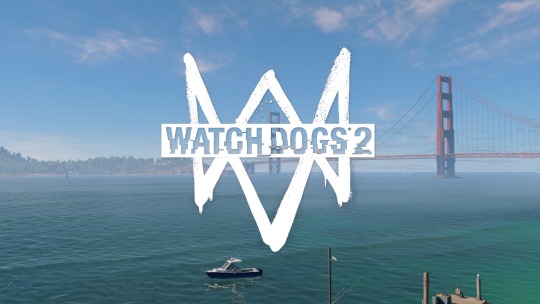
Watch Dogs 2 Critical Review
I don’t post many reviews of games here, mostly ‘cause you can find reviews everywhere and in any format. So why make one for Watch Dogs 2? Because they went the extra mile and they deserve more than what they got.
After the failure of the first game, it’s understandable why the sequel sold so poorly. Not even counting the amount of solid games that came out around the same time, but people have been burned by Ubisoft’s marketing far too many times. Take The Division, which I actually like and play, the downgrade wasn’t just in graphics but gameplay. It was far more interesting in the original trailer than what we ended up with. The Division is fun but also boring, and to a point you can say the same about Assassin’s Creed Syndicate (another game I like). Syndicate however has the benefit of having the twins, Evie and Jacob Frye are really fun characters and the Assassin’s Creed formula has its moments. But one thing was clear, Ubisoft was making cookie cutter missions in their open world games and that gets boring fast.
Finally they made a game that breaks away from the GTA clone Fed Ex formula (mostly anyway) and people weren’t buying it. Gaming sites were more concerned about getting hits, so while most of them praised the game, it was mostly as “it’s better than the first” which we all knew would be ‘cause that one was terrible. So why did I ignore the game? Well, to be honest it was Marcus. Don’t get me wrong, even without playing it I prefer Marcus over Aiden any day, but the promo videos kept showing Marcus as this dull character, and his clothes are something I wouldn’t wear even if I was cosplaying. I knew you could change clothes but have you seen the outfits they chose for the promo? he looks like a clown most of the time.
What I’m saying is, I couldn’t find myself in Marcus. Thankfully, they decided to offer that 3 hrs trial which I took. Played the hell out of the game to get a feel for the clothes, missions, characters and story. So I’m going to start my review with that, click keep reading if you’re interested.
The 3hrs Trial
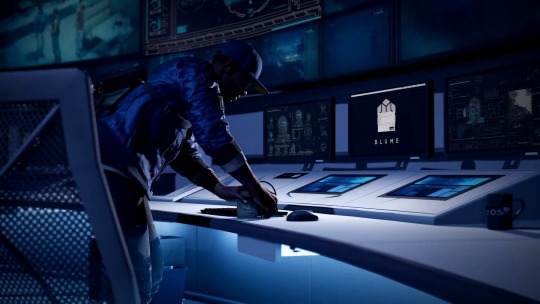
OK so the first mission was kind of hard, but it was fun. Talk about a tutorial in the middle of a war zone and with a timer no less. (trial timer, not mission timer) I had to learn fast to make the most out of it. The script is... well have you seen TV shows lately? yea not great but not as bad as some people make it out to be. The gameplay was solid, animations were pretty good and graphics are impressive. I was unimpressed with the characters, even Sitara which I liked from the promo material. I did a couple of main missions, stole the Cyber Driver car, played some co-op missions and 1 of the events, opted out of PvP ‘cause I’m not interested in that. I don’t go to the Dark Zone in The Division either so yea, PvP is not my thing. I did a lot of the ATM side quests which are quite fun and funny. By the end of the trial I knew I really wanted this game. It was already on my list, but I was going to buy it as cheap as possible. I talked to my friends (the ones that played the trial with me) and we all liked it, they bought the game before I did but we all got it. Not only that but we bought the Gold Edition, which is still on sale at the time of this post.
Gold Edition
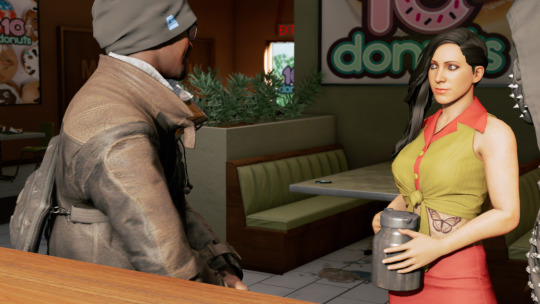
Why the Gold edition? Well, it comes with the Season Pass and it was $60 for the whole thing. So technically, it was finally priced right, the whole game for the price of a full game, I’m OK with that. It’s probably the only way I would recommend the season pass of any game.
Characters
Like I said before, during the 3hr trial I wasn’t impressed, but they slowly grew on me and I prefer that. In Life is Strange it was the same, I didn’t like Chloe until the third episode.

Marcus
Look at those clothes... wtf is that? He looks like TV static or something. Anyway, took a while but the guy grew on me thanks to moments like this one
youtube
Wish he had had more to do outside of doing the impossible. Also wish he had more interaction with Horatio.
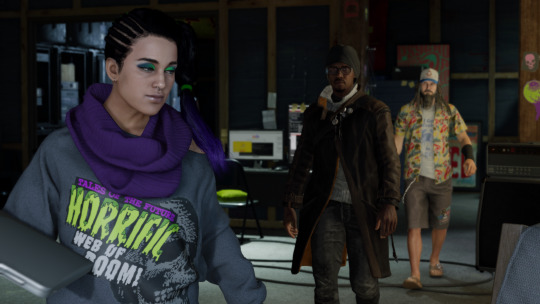
Sitara
She’s cool, the Sombra of the group (a lot more serious though) and more of an artist than a hacker, even though she’s brilliant. She knows the power of a brand and works hard to turn Dedsec into “celebrities”. Just don’t wear a man bun in front of her.
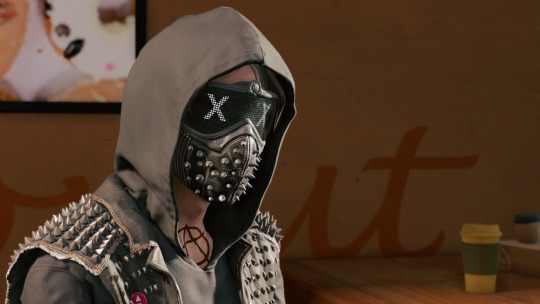
Wrench
Cynical, sarcastic, weird af and with a short temper. This is Marcus’ best friend in the crew. Throws tantrums every now and then, I can relate to this guy a lot more, except for the thongs... yea... can’t relate to that.

Josh
The walking super computer, he is a bit stereotypical as well as cartoonish but I still like this guy a lot. There’s a lot of potential with this character.
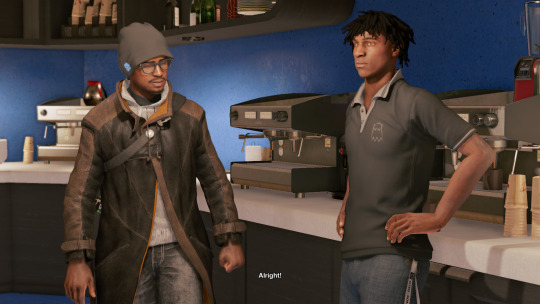
Horatio
And Horatio, you barely get to talk to this guy and that’s a real shame. The few moments he had with Marcus were great. With the amazing animations and expressions, their funny scenes were actually funny.
I’m pretty sure this is the first time Ubisoft went with this approach on the characters. We’ve seen games where the companions are just as important as the main character, games like Mass Effect, Dragon Age, Fallout 4 and of course the Saints Row series. I can say this was just a few interactions short of being as good as Saints Row’s. I applaud Ubisoft for this and hope they keep evolving this part of their story telling, with gameplay to support it.
Gameplay
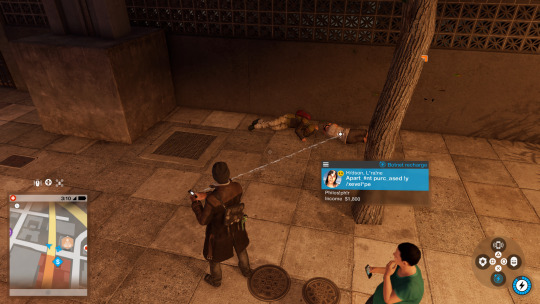
This game has variety, to the point where I haven’t tried everything it offers yet. Sure some of it is mundane, but I do love to have some mundane stuff in my open world games. As long as I don’t get a call from a cousin every 5 steps asking to go bowling. Still, the mundane stuff gives you an excuse to explore the beautifully crafted map. Same with the collectibles which help you unlock some skills later in the game.
They also added events, now since I locked my game as a single player experience (except when I join my friends in co-op) I’m not sure if the events are part of the co-op experience or if you have to open your game. You can choose to open it so that only friendly players show up in your session, however that doesn’t mean they won’t troll you, there are a lot of asses out there. But that’s another positive, the ability to lock the game as a single player experience or open its multiplayer options in ways that work for you. In any case I had a lot of fun with these events when playing with my friends. Especially one that has low tolerance for stealth (it was kind of hilarious as I was marking enemies and studying the locations, then suddenly he was blowing people up with traps)
I do recommend that if you don’t want to participate in PvP, that you turn off Bounty Hunter and Invasion but leave the friendly options open. Why? because even though there’s a chance trolls might find a way to hinder you, you also miss out on unscripted events that can only happen when some crazy dude has the cops or gangs on his tail. You can help them out or troll them yourself if that’s your kink.
One last thing, I know I’m keeping the gameplay details very vague but I prefer if you found out everything you can do in the game on your own, the drone and remote car are fantastic mechanics. I love it when a game introduces a mechanic that suddenly every game after it should build upon. Not unlike the Last of Us with their bow and on the fly crafting which was arguably improved by the competition in the Tomb Raider games.
Missed Opportunities
The game is VERY good as is, so if you can afford it, go ahead and buy it ‘cause unless you hate Open World Games, you should like this game a lot. Remember, there’s a 3hr free trial if you’re still unsure, it’s not a demo, it’s the full game and you have access to it for 3 hrs.
That being said, a few things could have turned this game from very good to great (at least in my opinion)

1- No way to donate money
A- can’t tip performers on the streets B- can’t give money to beggars C- can’t even donate to bank accounts of people you know have some kind of illness or problem
Sounds pointless, but if you do it often enough in a game, the reason why you did it may carry over to the real world. A pebble in a pond or whatever but I think it can work.
2- Chatting NPCs
A- it’s only used to deliver low level context B- should have an “affection” rating tied to it, even if the reward is some spray or clothing item C- can’t use intel from NPCs (unless scripted) to prepare better for a mission
You can talk to your crew and get their thoughts after every mission, but that’s ultimately pointless. I understand they didn’t want to lock people out of content, nor wanted to force people into something they didn’t want to do but hey, I didn’t talk to Garrus every single time after a mission and he still became one of my favorite characters of all time. Same with Liara and Tali.
3- Tone
A- too serious at times B- it should have been more about their branding, at least most of the game (it kind of is but they already have the main game’s goal from the start) C- after a particular story event, some missions should be locked for a substantial amount of in game time
Saints Row games know they are a parody and work with it. Yes they shift tone in a way. From being funny and satirical to Ling, Carlos, Gat and even you dying, but it still felt within the themes of the game. In Watchdogs 2 you can have a gang after you, then you’re joking about some stupid shit. It shifts too abruptly sometimes. It’s not annoying just something that could be ironed out in the future.
4- HQ Hackerspace
A- you have your main hideout in a game store and you didn’t Gwent it? B- no hideout customization C- Marcus can’t recruit for Dedsec
Seriously, why didn’t you make a game within a game? You could have made a table top game and go all Gwent with it. And not being able to customize at least one of the hideouts is kind of a first in a Ubisoft game. Also, for story purposes I wish that Marcus had his own recruits. This could have been a game of its own where you could recruit the wrong person and then having to deal with that. Of course this wouldn’t be scripted, the NPCs are out there, (I call them trigger NPCs) if you recruit those that are under cover or from P8 or whatever, then that’s on you.
5- Social Locations
A- no interesting NPCs in most of them B- they serve no purpose other than one interaction and as a fast travel point
Something could have been done with these, especially if tied to the whole Marcus being able to recruit for Dedsec thing. A little initiation or test could have been done here.
6- Canon vs Player Actions
A- Marcus can kill a lot of people if the player wants B- at one point in the story Marcus does kill some people but gets no reaction from the crew
This is the same problem I have with the new Tomb Raider games, killing is not a big deal for these characters. It should be, like I said with the change in tone. They are hackers kind of having fun exposing the big corporations and the corrupt. They like to feel like super heroes but then the game is designed to have lethal weapons that the player can use, which is fine, that’s a gamified action which doesn’t have to be canon. But when it does happen in the story I expect more, taking a life shouldn’t be as uneventful as changing clothes
7- Clothes
A- nobody cares what you wear once you buy pants B- changing your outfit doesn’t affect in any way the follower multiplier
When you start the game, right after your initiation, your first mission is to buy pants. People react to what you were wearing before, taking pictures and laughing at you. But that’s where it ends. Also when you buy your first set of clothes, your follower number (XP) rises, would be nice if it had some kind of multiplier tied to it. The only game I remember that went through with that was GTA San Andreas.
Disclaimer

No, I’m not a Ubisoft fanboy, in fact they piss me off sometimes. I signed up for The Division’s beta almost as soon as registrations were allowed but didn’t get a code. Which sure, I can see that you have a limited number of codes to give, but when it happens that you gave away codes to people that didn’t register, that’s when I get annoyed. I had to preorder the game to get in, I honestly was considering skipping the game entirely.
Thank you Ubisoft Montreal

On the chance that someone from Ubisoft is reading this, I want to thank everyone that worked on this game. It was a lot of fun and looking forward to more of it.
5 notes
·
View notes
Text
How To Teach after school Better Than Anyone Else
Most occupations that exist today may vanish inside decades. As electronic thinking outmaneuvers individuals in a perpetually expanding number of assignments, it will supplant individuals in a steadily expanding number of occupations. Various new purposes for living are most likely going to appear: virtual-world planners, for example. In any case, such purposes for living will probably require more noteworthy creativity and flexibility, and it is ill defined whether 40-year-old unemployed cabbies or security masters will have the ability to repeat themselves as virtual-world fashioners (endeavor to imagine a virtual world made by an insurance administrator!). Likewise, paying little mind to the likelihood that the ex-security expert by some methods makes the move into a virtual-world organizer, the pace of progress is to such a degree, to the point that inside one more decade he may need to reevaluate himself yet again.
The digital issue isn't making new businesses. The noteworthy issue is making new occupations that individuals perform better than estimations. Hence, by 2050 another class of people may create – the worthless class. People who are not as of late unemployed, but instead unemployable.
A comparable development that renders individuals inconsequential may in like manner make it possible to support and reinforce the unemployable masses through some arrangement of general basic compensation. The honest to goodness issue will then be to keep the masses had and content. People must take an interest in think activities, or they go crazy. So what will the purposeless class do for the duration of the day?
By 2050 another class of people may create – the useless class. People who are not exactly as of late unemployed, but instead unemployable
One answer might be PC diversions. Fiscally abundance people may contribute extending measures of vitality inside 3D virtual reality universes, which would give them a great deal more intensity and enthusiastic engagement than "this present reality" outside. This, honestly, is an amazingly old course of action. For a large number of years, billions of people have found hugeness in playing virtual reality preoccupations. Some time recently, we have called these virtual reality entertainments "religions".
What is a religion if not a noteworthy virtual reality preoccupation played by an enormous number of people together? Religions, for instance, Islam and Christianity create whimsical laws, for instance, "don't eat pork", "go over comparative petitions a set number of times each day", "don't have sex with some person from your own particular sexual introduction" and so on. These laws exist just in the human innovative vitality. No trademark law requires the emphasis of powerful formulas, and no typical law denies homosexuality or eating pork. Muslims and Christians encounter life endeavoring to get centers in their most adored virtual reality preoccupation. If you supplicate every day, you get centers. If you disregard to beg, you lose centers. If before the complete of your life you increment enough concentrations, then after you pass on you go to the accompanying level of the redirection (also called heaven).
Religion: a certified redirection in which we go to accumulate judicious core interests.
Facebook Twitter Pinterest
Religion: a certified redirection in which we offer to accumulate honorable core interests. Photograph: Kevin Frayer/Getty Images
As religions show us, the virtual reality require not be encased inside a detached box. Or, then again perhaps, it can be superimposed on the physical reality. In the past this was done with the human inventive vitality and with blessed books, and in the 21st century it ought to be conceivable with PDAs.
Some time earlier I kept running with my six-year-old nephew Matan to pursue for Pokémon. As we walked around the street, Matan kept looking wireless, which engaged him to spot Pokémon encompassing us. I didn't see any Pokémon at all, in light of the fact that I didn't pass on a phone. By then we saw two others kids in the city who were pursuing the same Pokémon, and we for all intents and purposes got into a fight with them. It struck me how similar the condition was to the dispute among Jews and Muslims about the favored city of Jerusalem. When you look at the objective reality of Jerusalem, all you see are stones and structures. There is no brilliance wherever. Regardless, when you look through the medium of smartbooks, (for instance, the Bible and the Qur'an), you see hallowed spots and brilliant chaperons everywhere.

You get centers with new cars and journeys abroad. If you have a bigger number of centers than each other individual, you won
Discovering hugeness in life by playing virtual reality amusements is clearly consistent to religions, and additionally to standard methods of insight and lifestyles. Consumerism too is a virtual reality preoccupation. You get centers by getting new cars, obtaining exorbitant brands and taking outings abroad, and if you have a more prominent number of centers than each other individual, you uncover to yourself you won.
You may dissent that people genuinely capitalize on their automobiles and journeys. That is decidedly substantial. Regardless, the religious genuinely value asking and performing capacities, and my nephew really values pursuing Pokémon. Finally, the bona fide move constantly makes put inside the human personality. Does it have any kind of effect whether the neurons are energized by watching pixels on a PC screen, by looking outside the windows of a Caribbean resort, or by watching heaven in our mind's eyes? In all cases, the importance we credit to what we see is made by our own specific identities. It is not by any extend of the creative ability "out there". To the best of our consistent data, human life has no essentialness. The importance of life is constantly a recounted story made by us individuals.
In his weighty paper, Deep Play: Notes on the Balinese Cockfight (1973), the anthropologist Clifford Geertz depicts how on the island of Bali, people contributed much vitality and money betting on cockfights. The betting and the fights included grow traditions, and the outcomes had noteworthy impact on the social, money related and political staying of both players and spectators.
The cockfights were so fundamental to the Balinese that when the Indonesian government reported the practice unlawful, people ignored the law and bet catch and powerful fines. For the Balinese, cockfights were "significant play" – a made-up entertainment that is contributed with so much suggesting that it pushes toward getting to be reality. A Balinese anthropologist could evidently have made tantamount papers on football in Argentina or Judaism in Israel.
Doubtlessly, one particularly charming fragment of Israeli society gives a unique research focus to how to continue with a conciliated life in a post-work world. In Israel, an immense rate of ultra-ordinary Jewish men never work. They spend their entire lives focus favored hallowed messages and performing religion services. They and their families don't starve to death most of the way in light of the way that the life partners routinely work, and to some degree in light of the fact that the lawmaking body outfits them with liberal assignments. Regardless of the way that they regularly live in dejection, government reinforce suggests that they never requirement for the fundamental necessities of life.
That is general basic compensation, all things considered. Regardless of the way that they are poor and never work, in a considerable number reviews these ultra-standard Jewish men report bigger measures of life-satisfaction than whatever other section of Israeli society. In overall surveys of life satisfaction, Israel is regularly at the outstandingly best, on account of some math to the dedication of these unemployed significant players.
You don't need to go all the way to Israel to see the universe of post-work. If you have at home a youthful youngster who likes PC diversions, you can coordinate your own specific trial. Give him a base blessing of Coke and pizza, and after that oust all solicitations for work and all parental supervision. The conceivable outcome is that he will remain in his space for an extensive time allotment, adhered to the screen. He won't do any homework or housework, will play hooky, skip dinners and even skip gives and rest. In any case he is most likely not going to encounter the evil impacts of exhaustion or a sentiment purposelessness. In any occasion not for now.
Therefore virtual truths are presumably going to be basic to offering planning to the trivial class of the post-work world. Maybe these virtual substances will be made inside PCs. Potentially they will be made outside PCs, in the condition of new religions and conviction frameworks. Maybe it will be a blend of the two. The potential results are enormous, and nobody knows for without question what kind of significant plays will associate with us in 2050.
Notwithstanding, the complete of work won't generally mean the complete of hugeness, since significance is created by imagining rather than by working. Work is crucial for significance similarly as demonstrated by a couple conviction frameworks and lifestyles. Eighteenth-century English country squires, show day ultra-regular Jews, and children in all social orders and periods have found a lot of interest and criticalness in life even without working. People in 2050 will probably have the ability to play encourage amusements and to grow more complicated virtual universes than in any past time ever.
In any case, shouldn't something be said in regards to truth? Shouldn't something be said in regards to reality? Might we genuinely want to live in a world in which billions of people are immersed in dreams, looking for after imagine targets and obeying nonexistent laws? Taking all things into account, like it or not, that is the world we have been living in.
0 notes